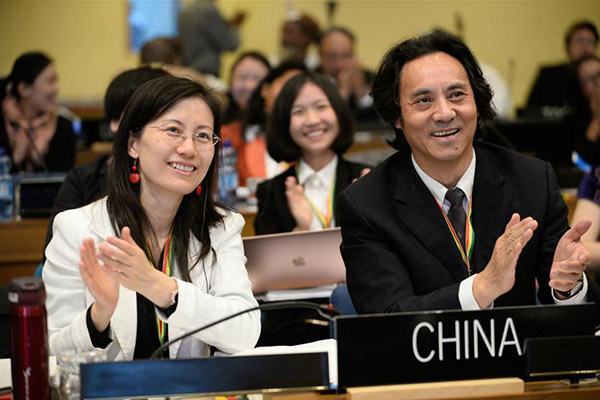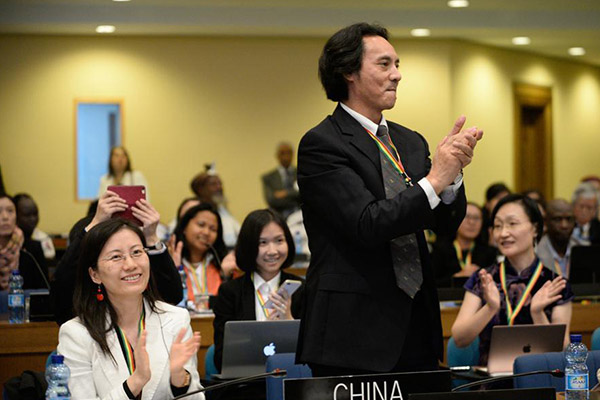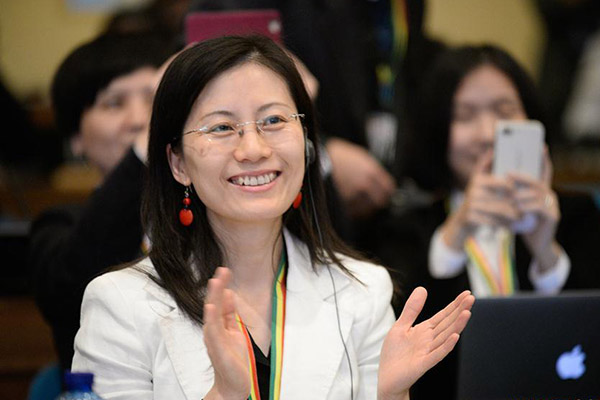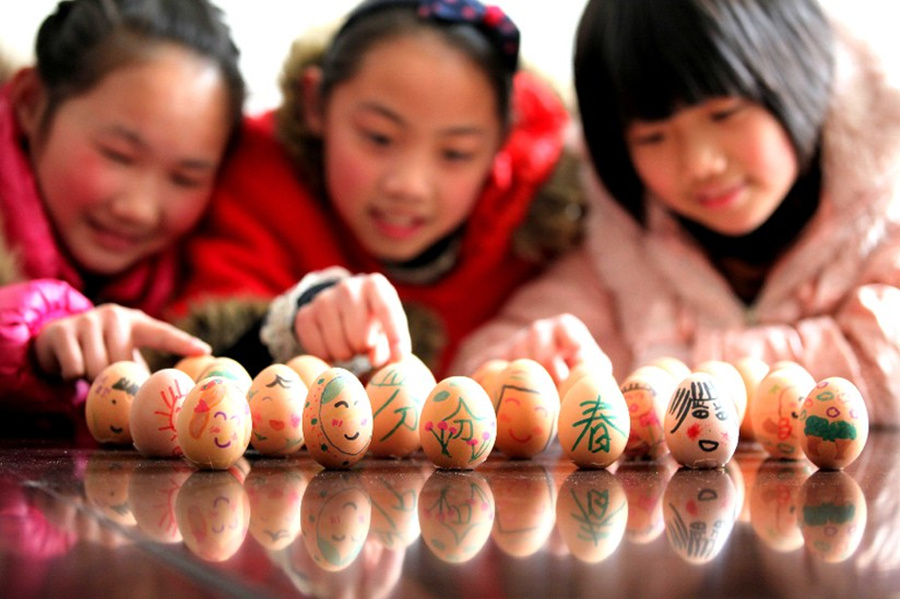
Chinese representatives applaud as the Twenty-four Solar Terms are added to UNESCO’s List of Intangible Cultural Heritage in Addis Ababa, Ethiopia, on Nov 30.[Photo/Xinhua]
China’s Twenty-four Solar Terms, a knowledge of time considered to be the country’s fifth great invention, were added to UNESCO’s List of Intangible Cultural Heritage on Nov 30.
The addition was announced by the United Nations Educational, Scientific and Cultural Organization, at the 11th Session of UNESCO’s Intergovernmental Committee for the Safeguarding of Intangible Cultural Heritage, which opened on Nov 28 in Addis Ababa, Ethiopia.
The meeting considered 37 nominations on the 2016 Representative List of the Intangible Cultural Heritage of Humanity.

Chinese representatives applaud as the Twenty-four Solar Terms are added to UNESCO’s List of Intangible Cultural Heritage in Addis Ababa, Ethiopia, on Nov 30.[Photo/Xinhua]
The inscription of the Twenty-four Solar Terms extended the number of Chinese items on the list to 31.
Ancient Chinese divided the traditional lunar calender into 24 solar terms. The season-synchronizing system was based on people’s observations of the sun’s annual motion and its influence on climate, mostly carried out at the lower reaches of Yellow River where Chinese civilization was born.
The system was completely established during the Qin (221-206 BC) and Han (206 BC-AD 220) dynasties. It was crucial to agricultural activities, such as when to sow seeds and when to harvest.

Chinese representatives applaud as the Twenty-four Solar Terms are added to UNESCO’s List of Intangible Cultural Heritage in Addis Ababa, Ethiopia, on Nov 30.[Photo/Xinhua]
People still use the system to better prepare their bodies for changes in climate.
Daxue, or major snow, the 21st solar term of the year, will begin on Dec 8 and end on Dec 21. During that time, temperatures will plunge and snow, mainly in North China and some southern regions, will become heavier than the previous solar term of xiaoxue, or minor snow, which ran from Nov 22 to Dec 6.
People are advised to drink hot soup with ginger and Chinese dates to fight the cold and eat oranges to prevent rhinitis and coughing.
The solar terms spread to other East Asian countries such as the Republic of Korea, Japan and Vietnam.

Children try to stand eggs upright during the Spring Equinox, one of China’s 24 solar terms. It is believed that the Spring Equinox is the best time to practice this game because on this day the axis of the earth is relatively balanced against the orbital plane of the earth’s rotation around the sun, which makes it easier to erect an egg.[Photo/Xinhua]
